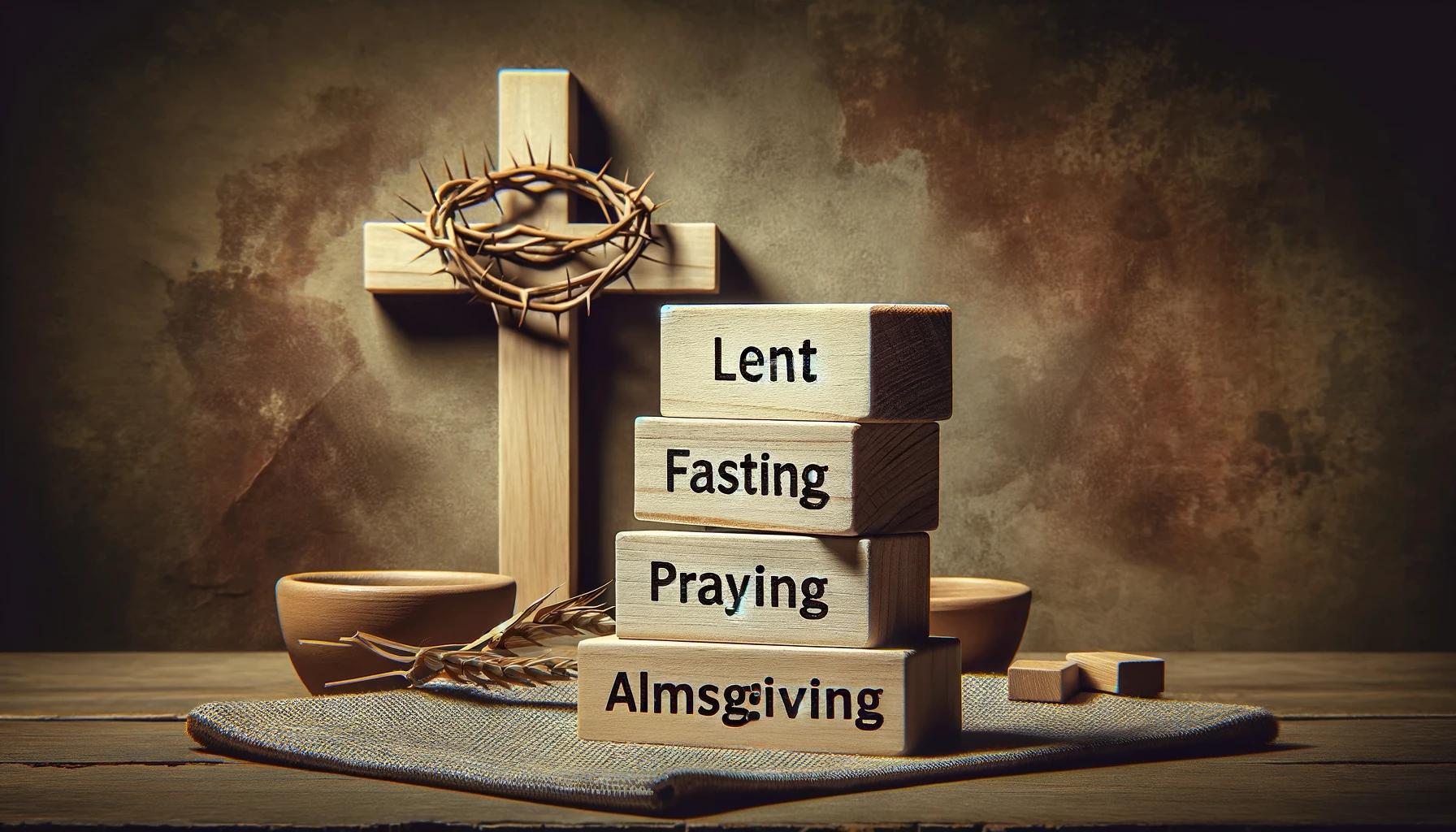Home>Christian Life>Which Religion Practices Confession?


Christian Life
Which Religion Practices Confession?
Published: March 5, 2024
Jason DeRose, Managing Editor at Christian.net, uses his expertise in religion and journalism to deepen understanding of faith's societal impacts. His editorial leadership, coupled with a strong academic background, enriches the platform’s diverse content, earning him recognition in both journalism and religious circles.
Discover the practice of confession in the Christian life and its significance in religious traditions. Learn about the role of confession in Christianity and its impact on spiritual growth.
(Many of the links in this article redirect to a specific reviewed product. Your purchase of these products through affiliate links helps to generate commission for Christian.net, at no extra cost. Learn more)
Table of Contents
Introduction
Which religion practices confession? Confession is a spiritual practice found in several religions around the world. It is a way for individuals to acknowledge their wrongdoings, seek forgiveness, and strive for spiritual growth. In this article, we will explore the practice of confession in various religions, including Christianity, Islam, Judaism, Hinduism, and Buddhism. Each religion has its own unique approach to confession, reflecting the diverse ways in which individuals seek reconciliation and spiritual renewal. Let's delve into the fascinating world of confession across different faith traditions.
Read more: Which Religions Have Communion
The Practice of Confession in Christianity
In Christianity, the practice of confession holds significant spiritual and sacramental importance. It is a means for believers to seek forgiveness for their sins and reconcile with God. The concept of confession is rooted in the teachings of Jesus Christ and is considered a fundamental aspect of Christian faith and spirituality.
1. Confession in Catholicism
In Catholicism, the sacrament of confession, also known as the sacrament of reconciliation or penance, plays a central role in the spiritual life of believers. Catholics confess their sins to a priest, who acts as a mediator between the individual and God. Through the sacrament of confession, Catholics believe that they receive absolution for their sins and are reconciled with God and the Church.
2. Confession in Eastern Orthodox Christianity
In Eastern Orthodox Christianity, confession, or the sacrament of penance, is also a vital practice. Similar to Catholicism, Orthodox Christians confess their sins to a priest and receive absolution as part of the sacramental rite. Confession is viewed as a means of spiritual healing and restoration, allowing believers to experience God's mercy and forgiveness.
3. Confession in Protestantism
In Protestant denominations, the practice of confession varies widely. While some Protestant churches observe private confession to clergy, others emphasize the direct confession of sins to God through prayer and personal reflection. The concept of confession in Protestantism is often intertwined with the broader themes of grace, repentance, and personal accountability before God.
The practice of confession in Christianity reflects the diverse theological perspectives and spiritual traditions within the faith. It serves as a powerful reminder of the universal human experience of sin and the profound need for forgiveness and reconciliation with the divine.
Read more: Which Religion Is Most Like Catholicism
Confession in Catholicism
In Catholicism, the sacrament of confession, also known as the sacrament of reconciliation or penance, plays a central role in the spiritual life of believers. Catholics confess their sins to a priest, who acts as a mediator between the individual and God. Through the sacrament of confession, Catholics believe that they receive absolution for their sins and are reconciled with God and the Church.
The process of confession in Catholicism typically involves the following steps:
-
Examination of Conscience: Before confessing their sins, Catholics are encouraged to engage in an honest and thorough examination of conscience. This self-reflection allows individuals to identify and acknowledge their sins before approaching the sacrament of confession.
-
Confession to a Priest: In the Catholic tradition, the sacrament of confession involves the verbal confession of sins to a priest in the privacy of the confessional or reconciliation room. The priest serves as a compassionate listener and spiritual guide, offering counsel and guidance to the penitent.
-
Contrition and Absolution: Following the confession of sins, the individual expresses genuine contrition and a sincere desire for spiritual renewal. The priest, acting in the person of Christ, then offers absolution, pronouncing God's forgiveness upon the penitent.
-
Penance: As a form of spiritual discipline and reconciliation, the priest assigns a penance to the individual. This may involve prayers, acts of charity, or other spiritual exercises aimed at fostering repentance and personal growth.
The sacrament of confession is regarded as a profound encounter with God's mercy and grace in the Catholic faith. It provides a sacred opportunity for believers to seek forgiveness, receive spiritual healing, and renew their relationship with God and the Church. The practice of confession in Catholicism underscores the significance of accountability, repentance, and the transformative power of God's love and forgiveness.
Confession in Eastern Orthodox Christianity
In Eastern Orthodox Christianity, confession, or the sacrament of penance, is a vital and deeply spiritual practice. Similar to Catholicism, Orthodox Christians confess their sins to a priest and receive absolution as part of the sacramental rite. Confession is viewed as a means of spiritual healing and restoration, allowing believers to experience God's mercy and forgiveness.
The process of confession in Eastern Orthodox Christianity shares similarities with the practice in Catholicism, yet it also possesses unique elements that reflect the rich theological and liturgical traditions of the Eastern Orthodox Church. When an Orthodox Christian seeks confession, they engage in the following steps:
-
Preparation for Confession: Before approaching the sacrament of confession, Orthodox believers engage in a period of self-examination and reflection. This introspective process, known as the "examination of conscience," allows individuals to identify their sins and shortcomings, preparing them for the sacramental encounter with God's mercy.
-
Confession to a Priest: The actual confession of sins takes place in the presence of a priest, who serves as a spiritual guide and witness to the penitent's contrition. The priest, representing the healing presence of Christ, listens attentively and offers compassionate counsel and guidance to the individual seeking reconciliation.
-
Prayer of Absolution: Following the confession of sins, the priest offers the prayer of absolution, invoking God's forgiveness and mercy upon the repentant believer. This prayer of absolution is a sacred moment in which the penitent receives assurance of God's pardon and reconciliation.
-
Spiritual Guidance and Penance: In addition to absolution, the priest may provide spiritual counsel and guidance to the individual, offering a penance as a means of spiritual discipline and growth. The assigned penance may include prayers, acts of charity, or other spiritual exercises aimed at fostering repentance and renewal.
The sacrament of confession in Eastern Orthodox Christianity is deeply rooted in the belief in God's boundless mercy and the transformative power of repentance. It is a sacred encounter through which believers seek spiritual healing, reconciliation, and renewal of their relationship with God and the community of faith. The practice of confession in Eastern Orthodox Christianity reflects the profound emphasis on humility, accountability, and the continuous journey of spiritual growth within the Orthodox tradition.
Confession in Protestantism
In Protestant denominations, the practice of confession varies widely. While some Protestant churches observe private confession to clergy, others emphasize the direct confession of sins to God through prayer and personal reflection. The concept of confession in Protestantism is often intertwined with the broader themes of grace, repentance, and personal accountability before God.
-
Private Confession to Clergy: Some Protestant traditions, such as Lutheranism and Anglicanism, maintain the practice of private confession to clergy. In these traditions, individuals have the opportunity to confess their sins to a pastor or priest in a confidential setting. The clergy member provides spiritual counsel, offers words of absolution, and guides the penitent in the process of seeking reconciliation with God.
-
Corporate Confession and Absolution: Many Protestant churches incorporate corporate confession and absolution into their worship services. During communal gatherings, congregants collectively acknowledge their sins and shortcomings through a corporate confession, followed by the pronouncement of God's forgiveness and absolution by a minister or worship leader. This communal act of confession underscores the shared responsibility and need for spiritual renewal within the faith community.
-
Direct Confession to God: In various Protestant traditions, there is an emphasis on the direct confession of sins to God without the intermediary role of clergy. Believers are encouraged to engage in personal prayer and reflection, confessing their sins directly to God and seeking forgiveness through a personal relationship with the divine. This form of confession highlights the individual's direct access to God's grace and the importance of personal accountability in the process of repentance and spiritual renewal.
The practice of confession in Protestantism reflects the diverse theological perspectives and worship practices within the Protestant faith. Whether through private confession to clergy, corporate acts of contrition and absolution, or personal confession to God, the concept of confession in Protestantism underscores the universal human need for grace, repentance, and the pursuit of spiritual wholeness within the context of individual faith journeys and communal worship experiences.
The Practice of Confession in Islam
In Islam, the practice of confession is deeply rooted in the concept of seeking forgiveness and repentance directly from Allah, the One God. While Islam does not have a formal sacrament of confession akin to some Christian denominations, the act of seeking forgiveness and admitting one's wrongdoings holds significant spiritual importance in the Islamic faith.
1. Tawbah (Repentance)
Central to the practice of confession in Islam is the concept of Tawbah, or repentance. Muslims are encouraged to turn to Allah in sincere repentance for their sins, seeking His forgiveness and mercy. Tawbah involves acknowledging one's transgressions, feeling genuine remorse, and making a firm commitment to abstain from sinful behavior in the future.
2. Istighfar (Seeking Forgiveness)
Muslims engage in the practice of Istighfar, which involves seeking forgiveness from Allah through the recitation of specific prayers and supplications. The phrase "Astaghfirullah" (I seek forgiveness from Allah) is commonly uttered by believers as a means of expressing remorse and seeking divine pardon for their shortcomings.
3. Private Confession to Allah
In Islam, the act of confession is primarily a private and personal endeavor between the individual and Allah. Muslims are encouraged to engage in heartfelt conversations with Allah, openly admitting their faults and seeking His forgiveness in the privacy of their prayers and supplications. This intimate form of confession underscores the direct relationship between the believer and the divine, emphasizing personal accountability and spiritual renewal.
4. Seeking Guidance from Scholars
In cases where individuals seek guidance on specific religious or ethical matters, they may turn to knowledgeable scholars or religious leaders for counsel and advice. While not a formal confession in the traditional sense, seeking guidance from learned individuals can provide clarity on moral dilemmas and assist in the process of seeking spiritual rectitude.
The practice of confession in Islam is deeply intertwined with the principles of repentance, seeking forgiveness, and personal accountability before Allah. Through sincere acts of Tawbah, Istighfar, and private confession, Muslims strive to cultivate a sense of spiritual purity, humility, and closeness to the divine, fostering a continuous journey of self-improvement and moral uprightness within the Islamic faith.
The Practice of Confession in Judaism
In Judaism, the practice of confession is deeply rooted in the pursuit of repentance, atonement, and spiritual renewal. Central to the concept of confession in Judaism is the observance of Yom Kippur, the Day of Atonement, which holds profound significance in the Jewish faith. Yom Kippur serves as a sacred occasion for individuals to engage in acts of confession, seeking forgiveness from both God and fellow human beings.
1. Yom Kippur and Vidui
Yom Kippur is a solemn and reflective day in the Jewish calendar, marked by fasting, prayer, and introspection. A key component of Yom Kippur is the recitation of Vidui, the confessional prayers. During the Yom Kippur liturgy, Jews engage in the collective recitation of Vidui, acknowledging a comprehensive list of sins and transgressions. The Vidui prayers are expressed in the first-person plural, emphasizing the communal responsibility for moral failings and the shared commitment to seeking forgiveness and spiritual purification.
2. Personal Confession and Teshuvah
In addition to the collective recitation of Vidui, Yom Kippur also provides an opportunity for personal introspection and confession. Individuals engage in Teshuvah, the process of repentance and return to God. Teshuvah involves acknowledging one's sins, expressing genuine remorse, and making a sincere commitment to rectify past wrongs and pursue a path of righteousness. Through personal confession and Teshuvah, Jews seek reconciliation with God and strive for moral and ethical improvement.
3. Seeking Forgiveness from Others
In Judaism, the practice of confession extends beyond seeking forgiveness from God to include seeking reconciliation with fellow human beings. Prior to Yom Kippur, individuals are encouraged to make amends and seek forgiveness from those whom they may have wronged. This act of interpersonal confession and reconciliation underscores the importance of repairing relationships, demonstrating accountability, and fostering communal harmony.
4. Ongoing Ethical Reflection
Beyond the observance of Yom Kippur, the practice of confession in Judaism is intertwined with the ongoing commitment to ethical reflection and moral accountability. Jews engage in regular self-examination, acknowledging their moral shortcomings, and striving to uphold the principles of justice, compassion, and ethical conduct in their daily lives. The concept of confession in Judaism serves as a catalyst for personal growth, ethical awareness, and the pursuit of spiritual integrity.
The practice of confession in Judaism reflects the profound emphasis on repentance, atonement, and moral accountability within the Jewish faith. Through the observance of Yom Kippur, the recitation of Vidui, personal confession and Teshuvah, seeking forgiveness from others, and ongoing ethical reflection, Jews endeavor to cultivate a sense of spiritual renewal, moral rectitude, and communal solidarity in their journey of faith and ethical living.
Confession in Hinduism
In Hinduism, the concept of confession is deeply intertwined with the principles of spiritual purification, self-reflection, and seeking forgiveness from the divine. While Hinduism does not have a formal sacrament of confession akin to some other religious traditions, the practice of confession is manifested through various rituals, prayers, and acts of personal introspection.
1. Self-Reflection and Moral Accountability
Central to the practice of confession in Hinduism is the emphasis on self-reflection and moral accountability. Hindus are encouraged to engage in introspective practices, known as "manana" and "chintana," which involve deep reflection on one's thoughts, actions, and ethical conduct. Through this process of self-examination, individuals identify their moral failings, acknowledge their mistakes, and seek to rectify their behavior in alignment with dharma, the righteous path.
2. Seeking Forgiveness through Prayer and Devotion
In Hinduism, the act of seeking forgiveness and spiritual purification is often expressed through prayers, devotional hymns, and acts of worship. Hindus may recite sacred mantras, such as the "Vishnu Sahasranama" or the "Shiva Tandava Stotram," seeking the forgiveness and benevolence of the divine deities. Through these prayers, individuals express contrition, seek divine grace, and strive for inner purification and moral upliftment.
3. Pilgrimage and Sacred Rituals
Another manifestation of confession in Hinduism is the performance of pilgrimage to sacred sites and participation in religious rituals. Pilgrimage, known as "tirtha yatra," holds great significance in Hindu tradition, offering individuals the opportunity to seek spiritual cleansing, atonement, and divine forgiveness. Hindus also engage in rituals such as "pradakshina" (circumambulation) around sacred temples and "puja" (worship) as acts of devotion and confession, expressing reverence and seeking spiritual absolution.
4. Karma and the Law of Cause and Effect
The concept of confession in Hinduism is intricately linked to the understanding of karma, the law of cause and effect. Hindus believe that one's actions, both positive and negative, have karmic consequences. Through the acknowledgment of past actions and their consequences, individuals engage in a form of confession by taking responsibility for their karma, seeking to purify their karmic imprints, and striving for spiritual growth and liberation.
5. The Role of Spiritual Gurus and Teachers
In the Hindu tradition, spiritual gurus and teachers play a pivotal role in guiding individuals on the path of confession and spiritual renewal. Seekers may approach enlightened masters for spiritual counsel, seeking guidance on moral dilemmas, ethical conduct, and the process of seeking forgiveness from the divine. The guru-disciple relationship fosters a supportive environment for individuals to engage in sincere confession, receive guidance, and progress on their spiritual journey.
The practice of confession in Hinduism reflects the profound emphasis on self-purification, seeking forgiveness, and aligning one's actions with spiritual principles. Through self-reflection, prayer, pilgrimage, adherence to dharma, and seeking guidance from spiritual mentors, Hindus endeavor to cultivate a sense of moral rectitude, spiritual purity, and harmonious living in accordance with the eternal principles of Sanatana Dharma.
Confession in Buddhism
In Buddhism, the practice of confession is deeply rooted in the principles of self-awareness, moral accountability, and the pursuit of spiritual purification. While Buddhism does not have a formal sacrament of confession akin to some other religious traditions, the act of confession is manifested through various rituals, ethical guidelines, and personal introspection.
-
Acknowledgment of Karmic Actions: Central to the concept of confession in Buddhism is the acknowledgment of one's karmic actions. Buddhists believe in the law of karma, the principle that one's intentional actions have ethical consequences. Through the practice of confession, individuals reflect on their past actions, acknowledging any unwholesome deeds or intentions, and strive to purify their karmic imprints through ethical conduct and spiritual growth.
-
The Practice of Vajrasattva Purification: Within certain Buddhist traditions, the practice of Vajrasattva purification holds significant importance as a form of confession and spiritual cleansing. Practitioners engage in the recitation of Vajrasattva mantras and visualization practices, seeking the purification of negative karma and the restoration of spiritual purity. This practice serves as a means of acknowledging one's faults, seeking forgiveness, and cultivating inner transformation.
-
Confession in the Context of Sangha: In the context of the monastic community (Sangha), confession plays a vital role in fostering ethical conduct and communal harmony. Monks and nuns engage in regular confession and ethical reflection as part of their training, acknowledging any breaches of the monastic code (Vinaya) and seeking guidance from senior monastic members. This communal act of confession underscores the shared commitment to moral integrity and the pursuit of spiritual discipline within the monastic community.
-
Personal Reflection and Ethical Conduct: For lay Buddhists, the practice of confession is intertwined with personal reflection and the observance of ethical conduct. Individuals engage in self-examination, acknowledging any unwholesome thoughts, speech, or actions, and strive to uphold the ethical precepts (Sila) as a means of moral purification and spiritual growth. Confession, in this context, serves as a catalyst for personal accountability and the cultivation of virtuous qualities.
-
The Role of Mindfulness and Compassion: The practice of confession in Buddhism is imbued with the principles of mindfulness and compassion. Through the cultivation of mindfulness, individuals become aware of their mental states and ethical conduct, acknowledging any unskillful behaviors or intentions. Additionally, the practice of confession is accompanied by a sense of self-compassion and the aspiration for inner transformation, fostering a spirit of forgiveness and self-acceptance.
The practice of confession in Buddhism reflects the profound emphasis on ethical awareness, karmic accountability, and the pursuit of spiritual purity within the Buddhist path. Through the acknowledgment of karmic actions, the practice of Vajrasattva purification, communal confession within the Sangha, personal ethical reflection, and the cultivation of mindfulness and compassion, Buddhists endeavor to cultivate a sense of moral integrity, spiritual purification, and the realization of liberation from suffering.
Read more: How Do Catholics Practice Lent?
Conclusion
In conclusion, the practice of confession holds significant spiritual and ethical importance across various religious traditions. From the sacramental rites of confession in Christianity to the introspective acts of seeking forgiveness in Hinduism and Buddhism, confession serves as a profound means of acknowledging one's moral failings, seeking reconciliation, and striving for spiritual renewal. Whether through private confession to clergy, collective acts of contrition, or personal introspection and ethical reflection, the concept of confession underscores the universal human need for accountability, repentance, and the pursuit of moral and spiritual integrity. Across different faith traditions, confession serves as a powerful reminder of the shared human experience of imperfection and the universal aspiration for forgiveness, grace, and inner transformation. As individuals engage in the practice of confession within their respective religious contexts, they embark on a journey of self-discovery, moral rectitude, and the pursuit of spiritual wholeness, fostering a sense of communal solidarity and ethical living within the diverse tapestry of religious beliefs and practices.









